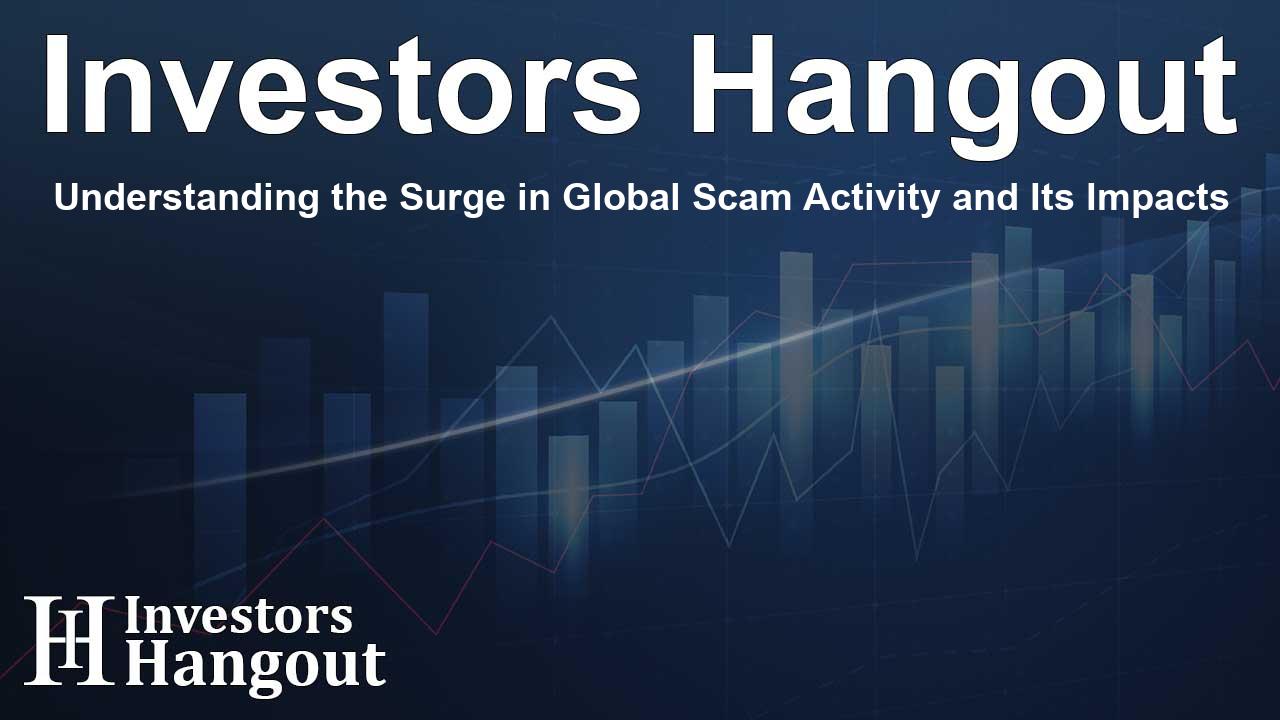Understanding the Surge in Global Scam Activity and Its Impacts

Understanding the Surge in Global Scam Activity
In a world increasingly reliant on digital interactions, the rise of scams has become a pressing concern for consumers everywhere. F-Secure, a leader in cyber security, has recently highlighted this phenomenon with insights from its latest Scam Intelligence & Impacts Report. As scams grow in prevalence, the need for stronger protection and awareness has never been more critical.
Scam Rates on the Rise
According to the findings, the rates of scams have alarmingly doubled in just one year, revealing just how vulnerable individuals are becoming in the face of sophisticated cyber threats. For instance, while a notable 69% of individuals believe they can identify scams effectively, a staggering 43% still fell victim to these traps over the past year. This striking discrepancy showcases a dangerous overconfidence that scammers are all too eager to exploit.
Young Adults at Greater Risk
Particularly concerning is the vulnerability of young adults, those aged 18 to 34, who faced more than double the risk of falling victim to scams compared to older demographics. This insight emphasizes the need for targeted education and resources to address these high-risk groups, ensuring they are equipped with the knowledge needed to protect themselves.
Emotional and Financial Toll
The emotional toll of falling victim to scams can be devastating. F-Secure’s Threat Intelligence Researcher, Megan Squire, described the situation as one where scams have moved beyond petty fraud; they are now industrialized, leveraging AI and psychological manipulation to deceive potential victims. This transformation of scam tactics means that every statistic represents not just a number, but real people who have lost money, trust, and peace of mind.
Key Findings of the Report
Highlighting several key findings, the report details that:
- Confidence Misplaced: Even with notable confidence levels, many consumers continue to be misled by scams.
- Yearly Trends: Scam rates in the U.S. have alarmingly doubled, underscoring a growing cycle of victimization.
- Young Adults in Focus: The demographic of 18-34 years is notably more exposed to scams than their older counterparts.
- Victim Stigma: The stigma around reporting scams means that only a small percentage of victims come forward, creating a silent epidemic.
- Consumer Demand: Half of consumers express a willingness to invest in protective measures against scams, particularly younger generations who view these protections as essential services.
Calls for Collective Action
F-Secure advocates that combating this scam epidemic cannot rest solely on the shoulders of individual consumers. Service providers play a pivotal role in this battle. By incorporating protective measures into everyday digital services and educating users on recognizing and avoiding scams, they have the potential to make a significant impact.
Looking Toward the Future
As the landscape of scams continues to evolve, F-Secure stresses the importance of proactive measures. As Fredrik Torstensson, Chief Partner Business Officer at F-Secure, stated, the need to transition from simply blaming victims to fostering resilience through education is essential. With their cutting-edge technology and commitment to service, F-Secure aims to ensure that protection against scams is as fundamental as internet access.
Key Chapters of the Report
The Scam Intelligence & Impacts Report is structured into several informative chapters, including but not limited to:
- 2025 Scam Landscape: Addressing Consumer Overconfidence
- Humanizing Scams: Insights from Victims
- The AI Scam Boom: How Technology amplifies risks
- The Silent Toll of Scams: Encouraging Victim Reporting
- Assessing Risk versus Reality in Crypto
- The Future of Trust: Navigating Digital Uncertainty
- Inside Scam Centers: The Duality of Exploitation and Privilege
- The Future of Scams: A Five Year Outlook
Frequently Asked Questions
What is the key finding of the F-Secure Scam Report?
The report highlights that confidence in identifying scams is misplaced, with 69% believing they can spot them, while 43% still fell victim.
Who is most affected by scams according to the report?
Young adults aged 18 to 34 are identified as the demographic most at risk of falling for scams, facing more than double the risk compared to older adults.
What does F-Secure recommend for fighting scams?
F-Secure recommends that service providers embed scam protections within their offerings and focus on educating users about emerging scam tactics.
How do scams impact consumers emotionally?
Victims can suffer significant emotional distress, feeling loss of money, trust, and than experiencing a diminished sense of security.
Is there a push for more protection against scams?
Yes, the report indicates a clear demand from consumers, with 50% expressing readiness to pay for scam protection services.
About The Author
Contact Owen Jenkins privately here. Or send an email with ATTN: Owen Jenkins as the subject to contact@investorshangout.com.
About Investors Hangout
Investors Hangout is a leading online stock forum for financial discussion and learning, offering a wide range of free tools and resources. It draws in traders of all levels, who exchange market knowledge, investigate trading tactics, and keep an eye on industry developments in real time. Featuring financial articles, stock message boards, quotes, charts, company profiles, and live news updates. Through cooperative learning and a wealth of informational resources, it helps users from novices creating their first portfolios to experts honing their techniques. Join Investors Hangout today: https://investorshangout.com/
The content of this article is based on factual, publicly available information and does not represent legal, financial, or investment advice. Investors Hangout does not offer financial advice, and the author is not a licensed financial advisor. Consult a qualified advisor before making any financial or investment decisions based on this article. This article should not be considered advice to purchase, sell, or hold any securities or other investments. If any of the material provided here is inaccurate, please contact us for corrections.
